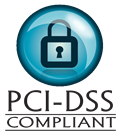To default means that you did not make the scheduled payments on your student loan according to the terms of the promissory note, the binding legal document you signed at the time you took out your loan.
back to top
Your loan becomes delinquent the first day after you miss a payment. The delinquency will continue until all payments are made to bring your loan current. Loan servicers report all delinquencies of at least 90 days to the three major credit bureaus. A negative credit rating may make it difficult for you to borrow money to buy a car or a house (you will be charged much higher interest rates). You also may have trouble
- signing up for utilities
- getting home owner's insurance
- getting a cellphone plan
- getting approval to rent an apartment (credit checks usually are required for renters).
It is important to begin repaying as soon as you receive a bill. Keep track of your student loan and learn how to manage your loan repayments.
back to top
If you have defaulted on any of your federal student loans, take the following steps:
- Contact FAMS.
- Always stay in touch with your lender, loan servicer, or FAMS.
back to top
The U.S. Treasury has the power to take your tax refund when you owe money to them for taxes, student loans, or any other monies owed to a government entity. One of the
consequences of default is that your federal and state taxes may be withheld through a tax offset.
back to top
You can restore your eligibility, assuming it has not been permanently lost. You have several options:
- Repay or satisfy the loan in full.
- Rehabilitate your loan through loan the rehabilitation program.
- Consolidate your loan through loan the consolidation program.
- Make six agreed-upon monthly payments over a six month period, and send a letter requesting reinstatement of Title IV eligibility. Your payment amount must be approved by the holder of the loan.
NOTE: You may qualify using this option only once.
- Every qualifying payment must be made in a timely manner (within 15 days of the due date), and
- You cannot make all six payments as a single lump sum payment.
After you've made six consecutive monthly payments and your eligibility has been restored, you must continue to make timely monthly payments to maintain your eligibility or else it will be permanently lost until the debt is resolved entirely.
Defaulted student loans have no statute of limitations for enforceability so unless you complete one of the options mentioned above, you will remain ineligible for additional federal financial aid.
back to top
The consequences of default can be severe:
- Higher Interest Rate or Denial of Credit: Your credit can be seriously damaged if you default on your student loan. This damage to your credit will affect the interest rates on future loans you are offered and can result in denial of credit opportunities outright.
- Responsible for collection fees and costs: When you have a defaulted loan, you are charged additional collection fees and costs associated with your loan collection that can substantially increase your loan balance.
- Wages Garnished: Under wage garnishment, a certain percentage of your income may be withheld by your employer and sent to your loan holder to pay for a defaulted student loan.
- IRS Funds Withheld: If you default on your student loan, your loan holder has the authority to seize your tax refund and other federal payments to which you are entitled to apply toward your outstanding loan balance.
- Lottery Winnings Withheld: If you win the lottery, the winnings can be seized and applied toward a defaulted loan.
- Legal Action: In extreme circumstances, the holder of a defaulted loan may take legal action against you to force you into repayment.
- Professional License Withheld You may have your professional license (e.g., cosmetology, real estate, medical) withheld . To have the license reinstated, you must have an established repayment arrangement with your loan holder before a release letter will be sent to the licensing agency.
- No More Federal Financial Aid If you default on your student loan, you will be ineligible for further federal financial aid unless your eligibility is reinstated.
back to top
If you believe your loan has been placed in default by mistake, you may be able to correct the error. Here's what you should do if one of the following is true.
IF: You've been attending school on at least a half-time basis.
THEN: Contact your school's registrar to get a record of all your dates of at least half-time attendance. Contact each school you have attended since you received your loan so your documentation is complete. Ask your loan servicer for the last date of attendance they have on file for you. If they have the incorrect date for your last date of attendance, provide your loan servicer with a copy of your documentation showing the correct date.
IF: You have a deferment or forbearance.
THEN: Ask your loan servicer to confirm the start and end dates of any deferments and forbearances that have been applied to your loan account. If the loan servicer has incorrect information, provide documentation with correct information.
IF: You believe you've made payments that weren't credited to your account.
THEN: Ask your loan servicer for a statement that shows all payments made on your student loan account. If payments you made are not listed, provide proof of payment to your loan servicer and request that the information in your account be corrected.












